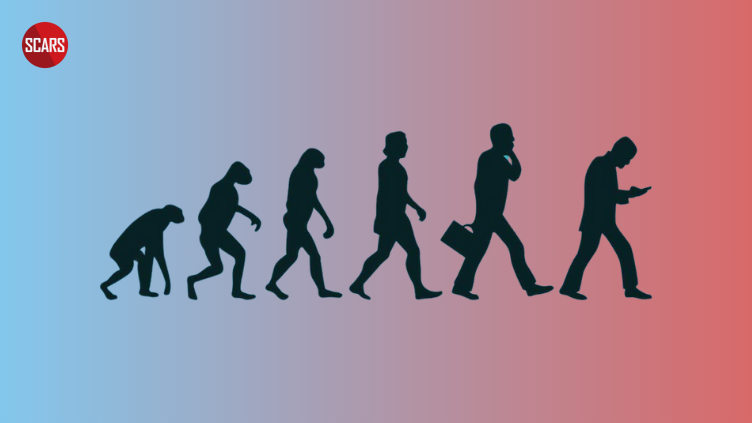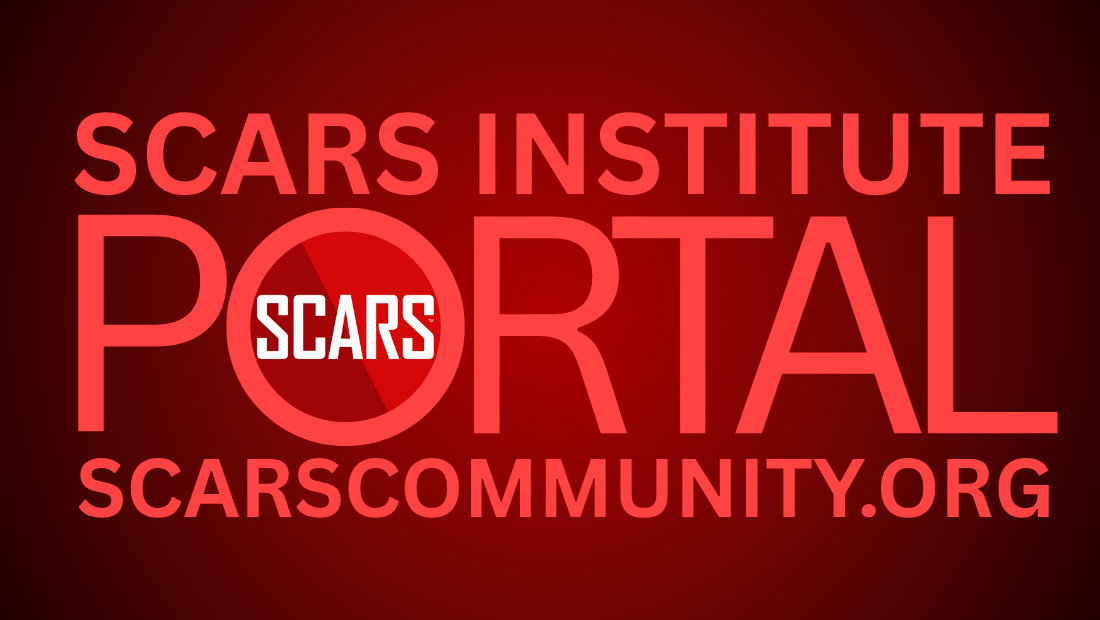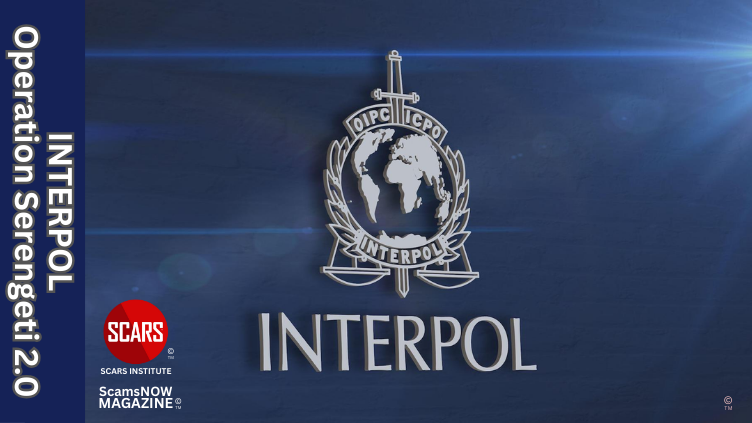INTERPOL Operation First Light With 3,950 Arrests
USD 257 million in assets seized in Operation First Light, with 3,950 arrests and the identification of 14,643 suspects spanning 61 countries.
Primary Category: Crimes and Criminals
Author:
• SCARS Editorial Team – Society of Citizens Against Relationship Scams Inc.
• INTERPOL
About This Article
Operation First Light 2024, a global police initiative spanning 61 countries, has struck a significant blow to online scam networks by freezing 6,745 bank accounts and seizing assets worth USD $257 million.
The operation, which targeted various scams including phishing, investment fraud, and romance scams, resulted in 3,950 arrests and the identification of 14,643 additional suspects. Authorities intercepted USD $135 million in regular currency and USD $2 million in cryptocurrency, alongside other high-value assets.
The operation, coordinated by INTERPOL and funded by China’s Ministry of Public Security, underscores the importance of international cooperation in combating transnational organized crime and protecting victims worldwide.

USD $257 Million Seized In Global Police Crackdown Against Online Scams
Operation First Light highlights the extensive reach of scam syndicates!
A global police operation spanning 61 countries has delivered a financial blow to online scam networks by freezing 6,745 bank accounts, seizing assets totaling USD 257 million, and disrupting the transnational organized crime networks involved.
Targeting phishing, investment fraud, fake online shopping sites, romance scams, and impersonation scams, Operation First Light 2024 led to the arrest of 3,950 suspects and identified 14,643 other possible suspects in all continents.
Police collectively intercepted some USD $135 million in regular currency and USD $2 million in cryptocurrency. Regular (fiat) currency, such as the US Dollar, Euro, or Yen, is official currency issued and regulated by governments.
Other assets worth over USD $120 million were seized, including real estate, high-end vehicles, expensive jewelry, and many other high-value items and collections.
Using INTERPOL’s Global Rapid Intervention of Payments (I-GRIP) mechanism to help them trace and intercept the illicit proceeds of crime, both in fiat and cryptocurrency, police intercepted USD 331,000 in a business email compromise fraud involving a Spanish victim who transferred money to Hong Kong, China.
Likewise in another case, authorities in Australia successfully recovered AUD 5.5 million (USD 3.7 million) on behalf of an impersonation scam victim, after the funds were fraudulently transferred to bank accounts in Malaysia and Hong Kong, China.
Director of INTERPOL’s Financial Crime and Anti-Corruption Centre (IFCACC), Dr Isaac Kehinde Oginni, said:
“The results of this global police operation are more than just numbers—they represent lives protected, crimes prevented, and a healthier global economy worldwide.
“By confiscating such large amounts of money, and disrupting the networks behind them, we not only safeguard our communities but also deal a significant blow to the transnational organized crime groups that pose such a serious threat to global security.”
On behalf of China’s Ministry of Public Security, Yong Wang, Head of the INTERPOL National Central Bureau in Beijing, said:
“The world is grappling with the severe challenges of social engineering fraud, and organized crime groups are operating from Southeast Asia to the Middle East and Africa, with victims on every continent.
“No country is immune to this type of crime, and combating it requires very strong international cooperation.”
Notable achievements from the operation include:
- The dismantling of a sophisticated international scam network in the Namibian capital.
- 88 local youths, who were forced into conducting scams, were rescued.
- Authorities seized 163 computers and 350 mobile phones
- The data they contained was handed over to INTERPOL General Secretariat headquarters for analysis.
Similarly, coordination between the Singapore Police Force’s Anti-Scam Centre, and Hong Kong, China, Police Force’s Anti-Deception Coordination Centre and local banks prevented an attempted tech support scam, saving a 70-year-old victim from losing SGD 380,000 (USD 281,200) worth of savings.
Joint investigations between Brazilian and Portuguese authorities disrupted several scam networks operating globally.
Operation First Light was strengthened by the participation of four regional policing bodies: AFRIPOL, ASEANAPOL, GCCPOL, and Europol.
Operation First Light activities are funded by China’s Ministry of Public Security, which recently hosted the concluding meeting in Tianjin, bringing participating countries together under one roof to analyze results, share intelligence, and plan future operations.
Operation First Light 2024 commenced in 2023 and culminated in its final tactical phase from March to May 2024.
INTERPOL has been coordinating First Light operations since 2014 to bolster cooperation and intensify efforts by member countries in fighting social engineering and telecom fraud.
-/ 30 /-
What do you think about this?
Please share your thoughts in a comment below!
More Interpol Information:
- INTERPOL Financial Fraud Report: The Global Threat Expands Boosted By Technology – 2024 (scamsnow.com)
- INTERPOL Warns Of ‘Metacrime’ On The Metaverse – 2024 (scamsnow.com)
- INTERPOL Operation HAECHI IV – Over 3,500 Successful Arrests – Expanded Details – 2023 (scamsnow.com)
- INTERPOL Identified Networks Linked to Financial Losses of More Than USD $40 Million (scamsnow.com)
- Interpol Operation Jackal – Arrested Over 100 (scamsnow.com)
- INTERPOL Issues Global Warning On Human Trafficking-Fueled Fraud (scamsnow.com)
-/ 30 /-
What do you think about this?
Please share your thoughts in a comment below!
SCARS LINKS: AgainstScams.org RomanceScamsNOW.com ContraEstafas.org ScammerPhotos.com Anyscam.com ScamsNOW.com
reporting.AgainstScams.org support.AgainstScams.org membership.AgainstScams.org donate.AgainstScams.org shop.AgainstScams.org
youtube.AgainstScams.org linkedin.AgainstScams.org facebook.AgainstScams.org
TABLE OF CONTENTS
- INTERPOL Operation First Light With 3,950 Arrests
- USD 257 million in assets seized in Operation First Light, with 3,950 arrests and the identification of 14,643 suspects spanning 61 countries.
- About This Article
- USD $257 Million Seized In Global Police Crackdown Against Online Scams
- More Interpol Information:
CATEGORIES
![NavyLogo@4x-81[1] INTERPOL Operation First Light With 3,950 Arrests - 2024](https://scamsnow.com/wp-content/uploads/2025/04/NavyLogo@4x-811.png)
ARTICLE META
Important Information for New Scam Victims
- Please visit www.ScamVictimsSupport.org – a SCARS Website for New Scam Victims & Sextortion Victims.
- SCARS Institute now offers its free, safe, and private Scam Survivor’s Support Community at www.SCARScommunity.org – this is not on a social media platform, it is our own safe & secure platform created by the SCARS Institute especially for scam victims & survivors.
- SCARS Institute now offers a free recovery learning program at www.SCARSeducation.org.
- Please visit www.ScamPsychology.org – to more fully understand the psychological concepts involved in scams and scam victim recovery.
If you are looking for local trauma counselors, please visit counseling.AgainstScams.org
If you need to speak with someone now, you can dial 988 or find phone numbers for crisis hotlines all around the world here: www.opencounseling.com/suicide-hotlines
Statement About Victim Blaming
Some of our articles discuss various aspects of victims. This is both about better understanding victims (the science of victimology) and their behaviors and psychology. This helps us to educate victims/survivors about why these crimes happened and not to blame themselves, better develop recovery programs, and help victims avoid scams in the future. At times, this may sound like blaming the victim, but it does not blame scam victims; we are simply explaining the hows and whys of the experience victims have.
These articles, about the Psychology of Scams or Victim Psychology – meaning that all humans have psychological or cognitive characteristics in common that can either be exploited or work against us – help us all to understand the unique challenges victims face before, during, and after scams, fraud, or cybercrimes. These sometimes talk about some of the vulnerabilities the scammers exploit. Victims rarely have control of them or are even aware of them, until something like a scam happens, and then they can learn how their mind works and how to overcome these mechanisms.
Articles like these help victims and others understand these processes and how to help prevent them from being exploited again or to help them recover more easily by understanding their post-scam behaviors. Learn more about the Psychology of Scams at www.ScamPsychology.org
SCARS INSTITUTE RESOURCES:
If You Have Been Victimized By A Scam Or Cybercrime
♦ If you are a victim of scams, go to www.ScamVictimsSupport.org for real knowledge and help
♦ SCARS Institute now offers its free, safe, and private Scam Survivor’s Support Community at www.SCARScommunity.org/register – this is not on a social media platform, it is our own safe & secure platform created by the SCARS Institute especially for scam victims & survivors.
♦ Enroll in SCARS Scam Survivor’s School now at www.SCARSeducation.org
♦ To report criminals, visit https://reporting.AgainstScams.org – we will NEVER give your data to money recovery companies like some do!
♦ Follow us and find our podcasts, webinars, and helpful videos on YouTube: https://www.youtube.com/@RomancescamsNowcom
♦ Learn about the Psychology of Scams at www.ScamPsychology.org
♦ Dig deeper into the reality of scams, fraud, and cybercrime at www.ScamsNOW.com and www.RomanceScamsNOW.com
♦ Scam Survivor’s Stories: www.ScamSurvivorStories.org
♦ For Scam Victim Advocates visit www.ScamVictimsAdvocates.org
♦ See more scammer photos on www.ScammerPhotos.com
You can also find the SCARS Institute’s knowledge and information on Facebook, Instagram, X, LinkedIn, and TruthSocial
Psychology Disclaimer:
All articles about psychology and the human brain on this website are for information & education only
The information provided in this and other SCARS articles are intended for educational and self-help purposes only and should not be construed as a substitute for professional therapy or counseling.
Note about Mindfulness: Mindfulness practices have the potential to create psychological distress for some individuals. Please consult a mental health professional or experienced meditation instructor for guidance should you encounter difficulties.
While any self-help techniques outlined herein may be beneficial for scam victims seeking to recover from their experience and move towards recovery, it is important to consult with a qualified mental health professional before initiating any course of action. Each individual’s experience and needs are unique, and what works for one person may not be suitable for another.
Additionally, any approach may not be appropriate for individuals with certain pre-existing mental health conditions or trauma histories. It is advisable to seek guidance from a licensed therapist or counselor who can provide personalized support, guidance, and treatment tailored to your specific needs.
If you are experiencing significant distress or emotional difficulties related to a scam or other traumatic event, please consult your doctor or mental health provider for appropriate care and support.
Also read our SCARS Institute Statement about Professional Care for Scam Victims – click here
If you are in crisis, feeling desperate, or in despair, please call 988 or your local crisis hotline – international numbers here.
More ScamsNOW.com Articles
A Question of Trust
At the SCARS Institute, we invite you to do your own research on the topics we speak about and publish. Our team investigates the subject being discussed, especially when it comes to understanding the scam victims-survivors’ experience. You can do Google searches, but in many cases, you will have to wade through scientific papers and studies. However, remember that biases and perspectives matter and influence the outcome. Regardless, we encourage you to explore these topics as thoroughly as you can for your own awareness.

























![scars-institute[1] INTERPOL Operation First Light With 3,950 Arrests - 2024](https://scamsnow.com/wp-content/uploads/2025/04/scars-institute1.png)

![niprc1.png1_-150×1501-1[1] INTERPOL Operation First Light With 3,950 Arrests - 2024](https://scamsnow.com/wp-content/uploads/2025/04/niprc1.png1_-150x1501-11.webp)